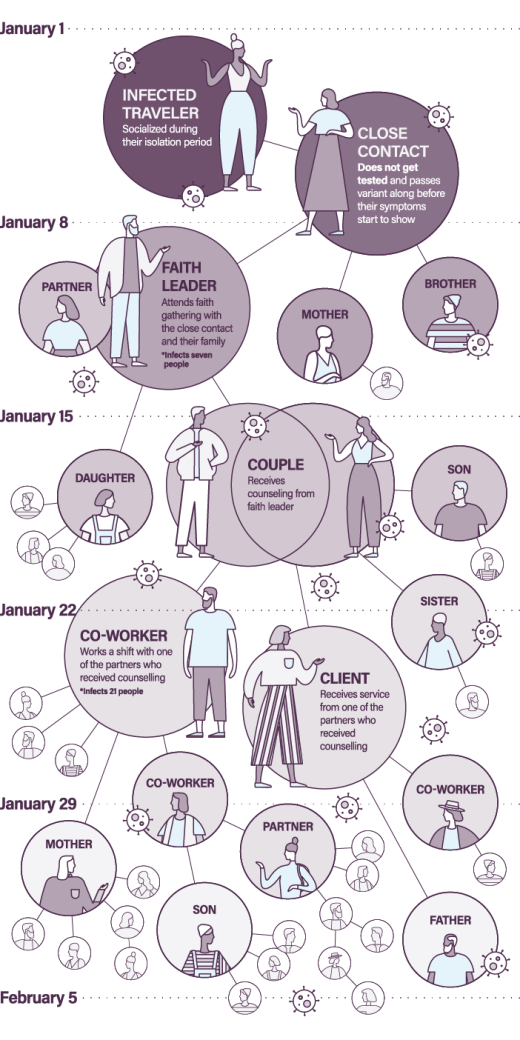Wildfires have resulted in evacuations in some communities. Learn more.
Overview
Variants are viruses that have changed or mutated from the original viral strain while reproducing inside an infected person’s cells. Variants can spread to others and may continue changing as they move from person to person. It is normal for viruses to evolve and change over time.
Most mutations do not cause more severe illness, but some may change how a virus behaves. These changed viruses are considered variants of concern and may spread more easily, cause more severe illness, require different treatments, affect the reliability of diagnostic tests, or have reduced vaccine effectiveness.
COVID-19 variants of concern first identified in other countries may spread and be detected in Alberta and around the world. Alberta is monitoring for variants spreading in our province.
Reduce the risk
Variants of concern can be prevented the same way as the original virus:
Variants of concern in Alberta
To date, 5 variants of concern have been identified in Alberta. The B.1.1.529 (Omicron) variant and its descendants are the dominant strain in Alberta.
Anyone who has been infected with a variant strain will test positive for COVID-19. Positive tests are screened again for all variants to determine the exact strain.
What we know
Knowledge and understanding of the COVID-19 variants is evolving rapidly. Scientists and public health officials around the world are studying variant strains and how the current vaccines may help protect against them.
Current evidence suggests:
- most are more contagious and spread more easily than the original strain
- some cause more severe illness, which could result in more hospitalizations and deaths (such as Delta)
- all have the same symptoms as the original virus, including cough, fever, shortness of breath, runny nose, and sore throat (see the full list of symptoms)
Learn more about COVID-19 variants.
Vaccine effectiveness and protection
The Pfizer, Moderna and Novavax vaccines currently available in Alberta offer protection against infection and severe outcomes with variants. However, the level of protection may vary depending on the variant and the number of doses received.
- For more information on specific effectiveness of COVID-19 vaccines, refer to the National Advisory Committee on Immunizations.
- The best defense against COVID-19 and all variants of concern continues to be:
Case study: How one case turned into many
One Albertan returned from travel with COVID-19. Instead of quarantining alone for 14 days following return from travel outside Canada, the infected traveller socialized with a friend during quarantine.
This triggered a chain of COVID-19 infections that spread far beyond that first individual. This is a real example, discovered through the contact tracing process conducted by Public Health.
